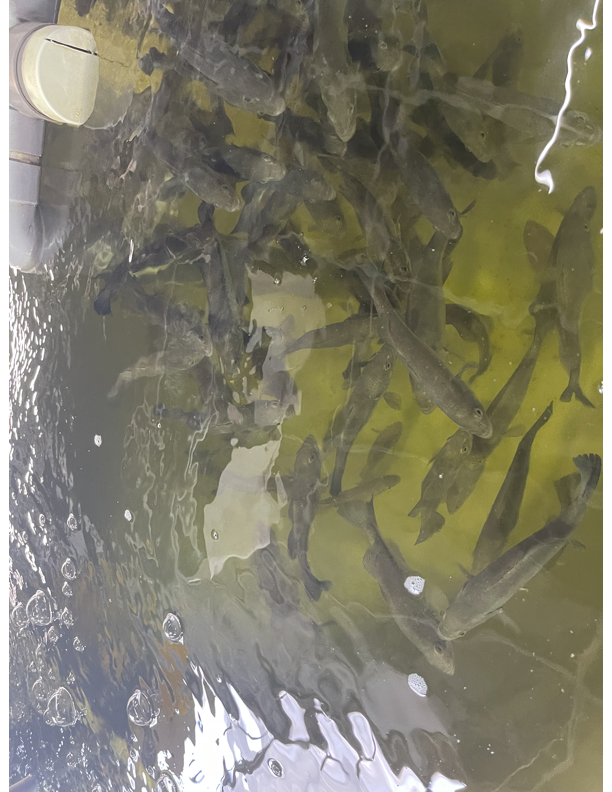5/26/2023 – Ana Panday
Today’s adventures included a visit to the aquaponic farm, Shuangyuan Fish and Vegetable Symbiosis Farm, located in Luzhu District, and a return to National Taiwan University to meet with the Department of Agricultural Economics.
When we arrived at the aquaponic farm this morning we were greeted by a cat, fish, a dog, a meerkat, and the owner of the farm, Mr. Zeng Wenkai. After showing us various outdoor organic vegetable farms and a pond, Mr. Zeng led us to his farm facilities where he discussed the process of developing his aquaponic farm, government regulations, land acquisition, energy cost and efficiency, and the chemical cycles of nutrients and minerals amongst many other things. He explained that while traditional farming methods consider excretion as waste, aquaponic farms make use of excretion by collecting, fermenting, and implementing its nutrients back into the water used to sustain the fish, vegetables, and earthworms on the farm. Aquaponics, which allows for a controlled environment for our food to grow, and as Taiwan faces the various challenges of climate change, in addition to potential food scarcity, this form of food cultivation could be employed as a tool in possibly combating these issues.
Aquaponics is not perfect, however, as it utilizes many non-recyclable and non-biodegradable plastics. The piping that facilitates the flow of water and its nutrients throughout the farm is composed of PVC (polyvinyl chloride), which is one of the world most widely used synthetic plastic polymers that cannot be chemically or mechanically recycled (ScienceDirect.com). Furthermore, much like many other aquaponic farms, the vegetables were grown using floating rafts made out of styrofoam. Much like with PVC piping, styrofoam contains a synthetic plastic polymer that currently cannot be recycled mechanically or chemically. However, there is some current research looking into chemical recycling methods for polystyrene, the polymer in styrofoam, as it is found in many common plastics (Huang et al., 2022). These plastics and their polymer composition pose large issues to the global community as they are not only difficult to recycle, but are ending up as microplastics in our waterways and food systems, which presents various health issues and environmental problems (Tian et al., 2022). It is important to note that only 9% of the world’s plastic is recycled, and recyclable plastics are given a number correlating to the difficulty of the plastic to be recycled. Polystyrene, which is one of the most pervasive plastics, is ranked 6th (Almanac.com). Whilst polystyrene is one of the most difficult plastic polymers to recycle, in Taiwan, many of the floating styrofoam floating rafts are reused in other industries, such as on oyster farms (Chen et al., 2018).
Later in the day we received a wonderful lecture from Professor Yir-Hueih Luh, who explained to us the development and opportunities of organic agriculture in Taiwan. She both put into perspective and introduced concepts and examples of organic farming that we have examined in the past few days and will visit in the following days to come, respectively. After her presentation, we were greeted by the department chair, Professor Hung-Hao Chang and various other department faculty, who shared with us their research interests and program focuses. We were able to chat and eat with them during a welcoming party they prepared for us. It was an especially great end to the evening to talk and share ideas with members of the department.



